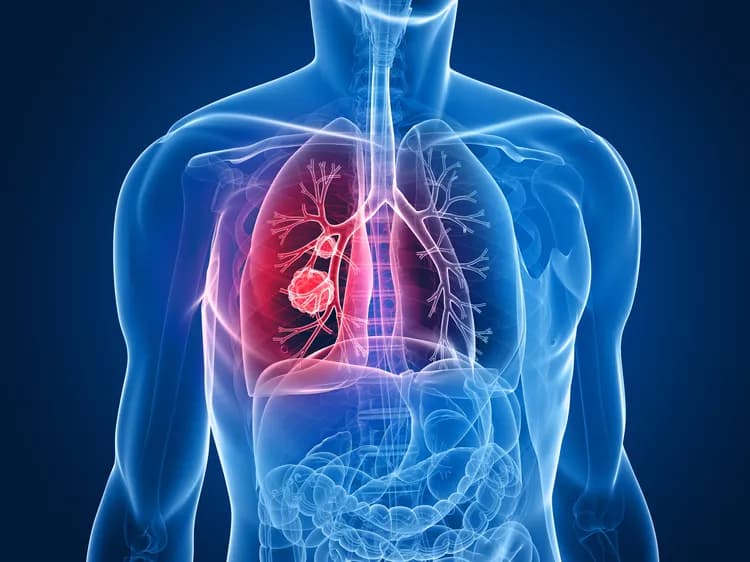
Young Adult Survivors Of Childhood Cancer Report Feeling Middle-Aged
Do survivors of childhood cancer return to normal health as they grow up? According to new research from Dana-Farber/Boston Children's Cancer and Blood Disorders Center and Harvard T.H. Chan School of Public Health, overall health-related quality of life in young adult survivors of childhood cancer resembles that of middle-aged adults. In a study published in the Journal of the National Cancer Institute, the investigators show that childhood cancer survivors who are 18 to 29 years old report overall health-related quality of life similar to that reported by adults in the general population who are in their 40s.
The key variable determining people's sense of well-being is the presence or absence of chronic health conditions. Childhood cancer survivors have been found to have higher risks of heart disease, infertility, lung disease, cancers and other chronic conditions related largely to their prior chemotherapy, radiation and surgery. Examining health indicators in 18-to-49 year-olds who participate in the national Childhood Cancer Survivor Study (CCSS), the investigators found that only 20 percent reported no chronic conditions. As survival of childhood cancer has increased substantially since the 1970s, research has expanded into ways to reduce the toxicity of treatment to minimize late effects as well as cure the disease. Although a number of pediatric cancers are now treated with less intensive therapies, aggressive treatments with high toxicities remain part of care.
"This research provides an easily accessible way to compare adult survivors of childhood cancer to the general population, in terms of their health-related quality of life, which normally declines as people age," said Lisa Diller, MD, chief medical officer of Dana-Farber/Boston Children's and the study's senior author. "Our findings indicate survivors' accelerated aging and also help us understand the health-related risks associated with having had cancer as a child. What's encouraging is that the lower quality of life scores are associated with chronic disease after treatment, not with a history of pediatric cancer itself. If we can prevent treatment-related conditions by changes in the therapy we use for the cancer, then childhood cancer will become an acute, rather than a chronic, illness."
The JNCI study is the first to use the Medical Expenditures Panel Survey (MEPS) to compare the health-related quality of life of the general population with that of childhood cancer survivors. The survey's household component, which includes questions on health status and demographics, has previously been used to compare the self-reported overall health of people in the general population and those with specific conditions, such as liver disease, chronic pain or. HIV/AIDS. In addition to utilizing MEPS, the researchers included information from CCSS on siblings of childhood cancer survivors. The sibling findings matched the MEPS results.
Using health status data collected from adult CCSS respondents age 18-49, researchers assigned health-related quality of life scores in which 1 indicated perfect health and 0 indicated death. They found that childhood cancer survivors who reported no chronic health conditions had scores similar to the general population. Survivors with chronic conditions had scores that matched the scores of chronically ill members of the general population.
Findings include:
- Early decrements in health-related quality-of-life were observed: Young adult survivors, age 18-29, had an average health-related quality of life score of 0.78, on the 0-1 scale, roughly equivalent to that reported for 40-to-49 year-old adults in the general population.
- The more chronic conditions, the lower the score: Childhood cancer survivors with no chronic conditions had an average health-related quality of life score of 0.81. Those with two chronic conditions scored lower, at 0.77. Those with three or more disabling, severe or life-threatening conditions had an average score of 0.70.
"By enabling comparisons to the general population, our findings provide context to better understand how the cancer experience may influence the long-term well-being of survivors," said Jennifer Yeh, PhD, lead author of the study and a research scientist in the Center for Health Decision Science at the Harvard Chan School. "This is another way to understand the health challenges survivors face and where to focus efforts to improve the long-term health and quality of life of survivors."
The MEPS sample consisted of 12,803 individuals. The CCSS sample included 7,105 survivors of pediatric cancer and 372 siblings.
The above post is reprinted from materials provided by Dana-Farber Cancer Institute. Note: Materials may be edited for content and length.
Disclaimer: DoveMed is not responsible for the adapted accuracy of news releases posted to DoveMed by contributing universities and institutions.
Primary Resource:
Yeh, J. M., Hanmer, J., Ward, Z. J., Leisenring, W. M., Armstrong, G. T., Hudson, M. M., ... & Diller, L. (2016). Chronic Conditions and Utility-Based Health-Related Quality of Life in Adult Childhood Cancer Survivors. Journal of the National Cancer Institute, 108(9), djw046.
Related Articles
Test Your Knowledge
Asked by users
Related Centers
Related Specialties
Related Physicians
Related Procedures
Related Resources
Join DoveHubs
and connect with fellow professionals

0 Comments
Please log in to post a comment.